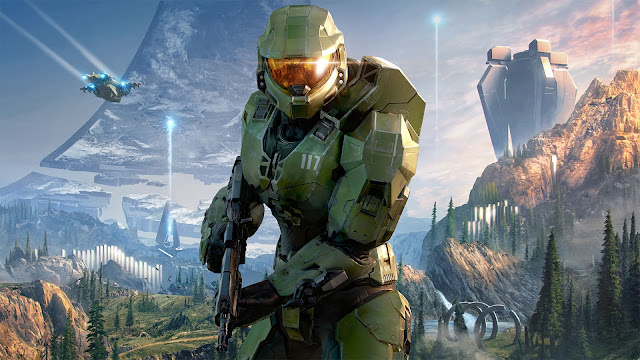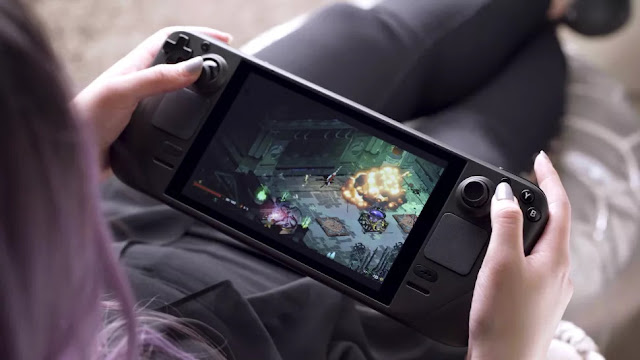Why Company Support of Fan Work Matters
Turns out one article wasn't enough to satisfy my Half-Life kick, because when I was choosing to play Half-Life 1 I had two options, Half-Life 1 or the remake Black Mesa. And while I chose Half-Life 1 I was fascinated by Black Mesa, a fan remake of Half-Life 1 that Valve allowed to sell for a profit on Steam. And it got me thinking about fan games and how they're important to most gaming companies... except one.
I'm a Nintendo fan and Nintendo's logic on fan-games is that if you do any fan game and it gains traction you will be automatically shut down. They have the right to do so mind you, but I feel it's a net negative on fandoms in general. Fan works are important and I feel that if developers support fan works in a healthy way it can create a sense of camaraderie and love for a company that would allow it to, in the eyes of the public, elude a lot of criticism.
The biggest example of supporting fans is Valve. Ever since the release of Half-Life, Valve has supported fan works in various ways, small or major. One of the biggest multiplayer IP's in gaming, Counter-Strike, exists because Valve supported the developers of it's original Half-Life mod form and eventually bought the devs up. Same case with Team Fortress or in the case of DOTA, Valve poached them from the Warcraft fandom to make DOTA 2.
But even if they're not bought into Valve, just Valve allowing fan-content to be sold separate from the Valve umbrella has a massive effect. G-Mod exploded in popularity thanks to Valve's support and has defined an entire era of Youtube humor. Black Mesa is considered on par with the original Half-Life and is considered a viable way to experience the 1998 classic.
Things like that have allowed Valve to stay relevant even though in 7 years most of their works have been more miss than hit; Artifact, Steam Machine, Steam Controller come to mind. This on top the numerous scandals with CS:GO gambling, failure to moderate the Steam Store, and lack of support for Team Fortress 2. But a healthy and creative fandom have allowed Valve to weather these storms long enough to make new content that gets people excited like Half-Life: Alyx or Steam Deck.
But Valve isn't the only one that supports fans; SEGA has taken a very hands off and encouraging approach with the Sonic fandom. SEGA's basic stance towards Sonic fan games is simply not to try selling it like it's an official product. Meanwhile the Sonic Social Media team usually highlight fan art in the pre-live stingers of their bi-weekly streams.
It's not as big as what Valve does, Valve is an outlier in just how much they encourage fan works. But SEGA did once contract talented fans with a proof of concept to port Sonic 1, 2, and CD to mobile platforms. That team of porters went onto make an official Classic style game with Sonic Mania, a game I'd love to see a proper follow up to.
A final and smaller example is Halo throughout it's history from Bungie to 343. Halo's first developer, Bungie, was well known for conversing and being involved with their fandom, promoting fan art and movies made inside Halo. Bungie even put easter eggs to fan works like Red vs. Blue inside their games, a sort of dev and fan relationship rarely seen back in the 6th and 7th generations of gaming.
343 meanwhile has done an exceptional job following Bungie's example in terms of fan interaction, in some cases doing it better than Bungie. Monthly fan art showcases are the norm while changes to Halo MCC are usually based on fan feedback. Skilled fans have even been bought in by 343 such as Pixelflare or the Sins of the Prohpets Team. Most important is the Halo Insider Program, where 343 allows fans to test early builds of game builds for quality control. It's a cool way to get fans involved that, in terms of major studios, only DICE has matched with some Battlefield games.
Honestly I've only scratched the scratching the surface of it, I could go on for quite a while about companies that support their fandoms. From Id and Classic Doom addons to so many Indie games that actively communicate with their fans on a regular basis. I don't think I've truly explained why it matters though.
Well the thing is that fan involvement gives a franchise longevity beyond official releases and give a sense of camaraderie with a game company. While that isn't important for the company that makes your toaster; it is important for entertainment companies where you need to create a feeling that said company isn't just an automaton designed to make money. It's the thing that encourages people to create, which causes discussion, which keeps interest going. It's basically a self-perpetuating machine of interest that, while it can shrink, is hard to fully kill.
What do DOOM, Sonic, and Half-Life have in common? They all went years or even decades without high profile quality releases and yet fan interest never truly died. And that's because while the fandom did shrink it never fully died. So when quality releases and interest came back their fandoms were ready to rapidly grow in response. It happened to DOOM after DOOM 2016, Half-Life after Half-Life Alyx, and Sonic after Sonic Mania. We're even seeing it start to happen with Halo and the lead up to Halo Infinite.
Now it's not necessary to support fan content as long as you maintain high quality releases on a regular or semi-regular basis. Nintendo does this well, every year pumping out at least one high quality title, even the mid-grade filler content is fairly high quality. But Nintendo's basic treatment of fandom has become a problem for their perception. They're becoming seen as more of a soulless company that only seeks for people to consume.
To be fair to Nintendo for a moment, their treatment of fan-art is usually fine; it's fan-games that are the problem. Spend 8 years of your life making a free fan remake of Metroid 2? Cease and desist. Site full of hundreds of fan-games? Cease and desist. Fan made Pokemon game? Cease and desist. Fan made Smash mod worked on for 4 years by a devo-? Cease and desist.
Seeing a pattern? When a fan made game gains any sort of love or traction there's Nintendo ready to put a boot on the fans necks. Like I mentioned before, this stuff is Nintendo's IP and thehy have every right to protect it. The problem is that it's created an atmosphere of fear that, combined with Nintendo's seeming unwillingness be receptive to the kind of retro re-releases fans want, has created a feeling of hatred towards Nintendo.
It's something I noticed when Nickelodeon announced a Smash Bros. competitor with Nickelodeon All Stars Brawl. A lot of Nintendo and Smash fans began rooting for the game to succeed, with a lot of the language having a particular venom and hatred for Nintendo. I noticed it again when Valve announced it's entry into the handheld market with the Steam Deck. Optimisitc caution for the Deck, but also a hatred for Nintendo from elements of it's own fandom that rooted for the Deck to embarrass the Switch.
Basically Nintendo fans want Nintendo to get it's ass kicked so hard that it humbles them, which is bizarre. You don't see the majority of Halo fans rooting for Infinite to fail; same with Half-Life, Sonic, or Doom. But you do see a significant amount of Nintendo fans rooting for Nintendo to fail in their endeavors. It's a toxic mindset from Nintendo fans, but it's also a bed of thorns Nintendo made for itself and one they can dig themselves out of simply by embracing their fandom and embracing their clearly communicated wants and needs, like so many companies seem to do much better.








Comments
Post a Comment